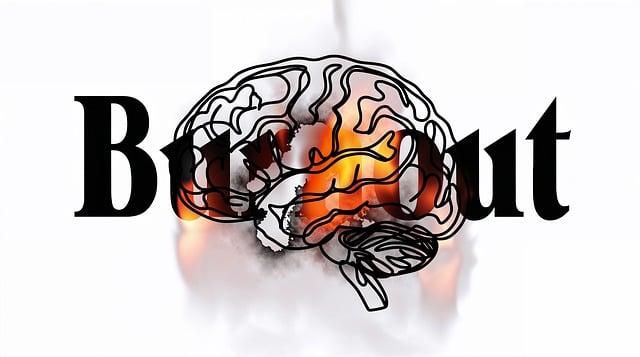Stress, from work, finances or relationships, can cause physical & mental harm. Parker Pain Management Therapy advocates holistically managing stress through self-care & confidence building. Effective workshops start by assessing participants' coping mechanisms, tailor exercises like guided meditations & cognitive-behavioral strategies to individual needs. Open discussions, peer support, and self-care routines are taught to create a supportive environment for sharing experiences and developing personalized stress management plans. Facilitation techniques and community outreach programs enhance the impact of these workshops, empowering individuals on their Parker Pain Management Therapy journeys.
Stress management workshops are powerful tools for personal growth and professional development. In today’s fast-paced world, understanding and addressing stress effectively is crucial for overall well-being. This article explores strategies for organizing workshops that focus on unveiling root causes and impacts of stress, particularly emphasizing Parker Pain Management Therapy. We delve into designing engaging sessions, facilitative techniques, and creating supportive environments to empower individuals in navigating stress.
- Understanding Stress: Unveiling the Root Causes and Impacts
- Designing Effective Workshops: Strategies for Parker Pain Management Therapy
- Facilitation Techniques and Supportive Environment Creation
Understanding Stress: Unveiling the Root Causes and Impacts

Stress is a pervasive issue that can stem from various sources, affecting individuals both physically and mentally. Understanding its root causes is pivotal in effective stress management. Many factors contribute to heightened stress levels, such as demanding work or school schedules, financial pressures, personal relationships, health concerns, or even cultural and environmental influences. These triggers can lead to chronic stress if left unaddressed, resulting in a range of negative impacts on overall well-being.
Recognizing the signs and symptoms is the first step towards relief. Common physical manifestations include headaches, muscle tension, fatigue, and disturbed sleep patterns. Emotionally, stress may manifest as anxiety, irritability, or difficulty concentrating. At Parker Pain Management Therapy, we believe that addressing these issues holistically is key. By incorporating self-care practices and confidence-boosting techniques, individuals can learn to manage stress more effectively, leading to improved mental resilience and a greater sense of calm amidst life’s challenges. This approach aims to empower people to take control, find clarity, and ultimately experience anxiety relief.
Designing Effective Workshops: Strategies for Parker Pain Management Therapy

Designing effective workshops is key to delivering impactful Parker Pain Management Therapy sessions. To ensure success, organizers should incorporate interactive and engaging activities tailored to participants’ needs. Start with an assessment to understand their current coping mechanisms and pain management strategies. This foundation allows for personalized exercises, such as guided meditations, relaxation techniques, and cognitive-behavioral strategies, which have been proven effective in managing chronic pain. Facilitators should also encourage open discussions, fostering a safe space for sharing experiences and leveraging peer support.
Integrating Self-Care Routine Development for Better Mental Health is another powerful strategy. Workshops can teach participants how to prioritize self-care activities like regular exercise, balanced nutrition, and adequate sleep. Additionally, introducing Community Outreach Program Implementation can expand access to resources and create a sense of belonging. Incorporate Self-Awareness Exercises to help individuals identify triggers and develop personalized stress management plans. By combining these approaches, workshops become transformative experiences that empower participants to take control of their Parker Pain Management Therapy journey.
Facilitation Techniques and Supportive Environment Creation

Effective stress management workshops rely heavily on skilled facilitation techniques and the creation of a supportive environment. Facilitators play a crucial role in guiding participants through various exercises, ensuring everyone feels comfortable sharing their experiences. Techniques such as active listening, open-ended questions, and non-judgmental feedback foster an atmosphere of trust and understanding. Incorporating interactive activities, group discussions, and mindfulness practices allows for a dynamic and engaging session that addresses individual needs.
A supportive environment is essential for participants to feel safe and empowered. Creating a confidential space where everyone respects each other’s boundaries contributes to open communication. Using inclusive language, accommodating diverse backgrounds, and ensuring accessibility aids in making the workshop welcoming. Additionally, incorporating elements of public awareness campaigns, conflict resolution techniques, and depression prevention strategies can further enrich the workshop experience, offering participants valuable tools for stress management and overall well-being, much like Parker Pain Management Therapy focuses on holistic pain relief.
Stress management workshops are powerful tools for organizations to support employee well-being. By understanding stress, its root causes, and impacts as discussed in this article, organizations can effectively design programs that leverage strategies like Parker Pain Management Therapy. Facilitation techniques that create a supportive environment are key to ensuring these workshops are engaging and impactful. Through these initiatives, companies can foster a healthier, happier, and more productive workforce.














